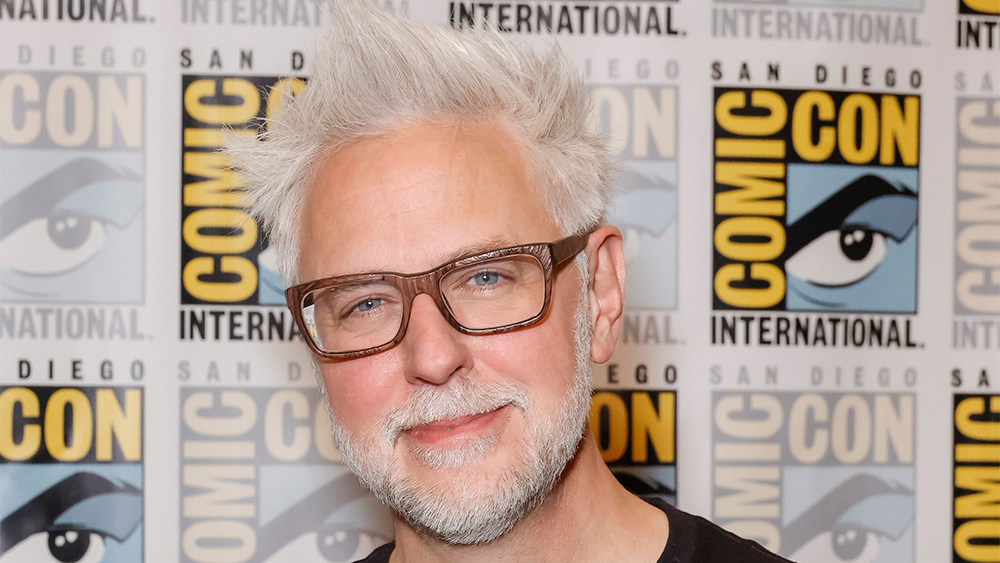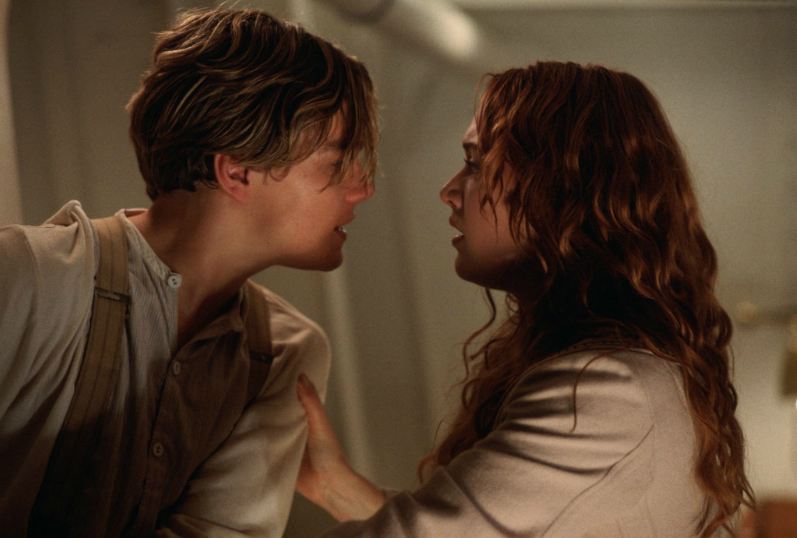James Gunn helped me remember one of the most powerful components of a great story

I was watching James Gunn do an interview with actor and podcaster, Michael Rosenbaum. For reference, they’re good friends. And, also, Rosenbaum played Lex Luthor in the show, Smallville.
One of the topics that came up in the podcast was “superhero fatigue,” which Gunn admitted was a huge problem for moviegoing in the current era. But he went even further than that. He said he’d grown fatigued by all spectacle movies.
One thing he said really stuck with me. He said he couldn’t remember the last time he watched the third act of one of these spectacle movies AND ACTUALLY CARED ABOUT WHAT WAS GOING ON.
This is the same reason why I’ve been so reluctant to see Hollywood movies lately. It’s why I didn’t see Ant-Man. It’s why I didn’t see Fast X. It’s actually why I didn’t see Guardians (as I assumed it would be yet another third act Marvel mess).
But it was what Gunn said next that really hit hard. He said, “You don’t feel anything for the characters. And if you don’t feel anything for the characters, you don’t care what’s going on.”
This immediately got me thinking about how to get the audience to care. What makes me care about a story? Luckily, I just read a great story yesterday, in “Wild,” about a werewolf who takes in a thief on the run. What was it about that script that made me care?
Simple, really.
The central relationship.
We put so much focus on the hero in screenwriting that we’ve lost sight of the fact that what really makes us care is our main story pairing. Because just like in real life, there’s power in numbers. Why rest everything on a lone hero’s accomplishment when you can pair two people up and have them experience that victory together?
There is something about watching two people connect and overcome obstacles that hits the audience harder than when just one person does it. Would it have been cool, yesterday, to see just Liz beat up all the bad guys with her werewolf powers? Sure. Would it have been cool to see just Nick kill all the shady gangsters who chased him into town? Sure.
But watching them both do it TOGETHER? Watching them depend on each other? That feeling of accomplishment is multiplied because we’re not just happy for him or happy for her. We’re happy because each of them helped SOMEONE ELSE. It was not a selfish act. It was a selfless connective act. And that’s what gets audiences feeling all warm and fuzzy inside.
I relate this to playing tennis. I kinda hated singles growing up. I felt good when I won, I guess. But I was never happy when I was playing the match. I was always screaming at myself and upset that some part of my game wasn’t working. When I won, I was just happy that I didn’t lose. I felt like Jokic after winning the NBA finals. Just let me go home.
But I LOVED doubles. The specific reason I loved doubles was because when I won, I got to share that victory with someone else. Usually, a good friend. There was nothing better than that feeling.
What James Gunn is talking about is the erosion of the screenwriter’s focus on this tool. The reason we don’t care about the ending is not because of all the cheesy VFX – although that’s certainly part of it. The reason we don’t care is because we don’t care about these characters and we certainly don’t care about their connection with one another.
None of this is to say these companies aren’t trying.
No producer is going out there and saying, “Who cares what the audience thinks of our characters.” Quite the opposite. If you listen to Kathleen Kennedy, she can’t stop talking about the importance of characters.
So then why do all her characters suck?
It’s because they’ve forgotten that it isn’t just about making your hero likable. It’s about the Power of Two. You have to make the hero likable and then you have to develop a compelling relationship with another character who we care about and now your story is turbocharged. Cause we’re not just rooting for the hero. We’re not just rooting for the co-hero. We’re rooting for them as a team.
“Okay,” you’re saying. “But how do you develop a Power of Two who we actually care about, Carson? Cause just saying ‘create two characters instead of one’ doesn’t automatically result in a great script.”
True dat.
We can look to yesterday to get our answer to this. There’s one primary ingredient you absolutely must inject. And that’s CONFLICT. You have to create conflict within that primary relationship.
What that conflict does is it PUSHES your central characters apart. And then, in order for them to be victorious, they must PULL together. If you get that push-pull right? That’s your golden ticket to screenplay nirvana. If you do nothing else right but that, you’ll have a good screenplay. That’s the secret sauce.
So, yesterday, what’s PUSHING them apart is that Liz is a werewolf. But they can’t defeat the sheriff’s family or the criminals unless they PULL together.
But don’t take some unproven Black List script’s word for it. Look at two of the most successful movies of all time – Titanic and Avatar. Jack and Rose are pushed apart by society. But they must pull together to survive the sinking of the ship. Jake and Neytiri are pushed apart by being from two different cultures but must pull together to defeat the human’s military attack.

That’ll do the majority of the work for you.
But if you want to really make people care, follow this one-two punch: Make the central relationship interesting in some way. And make it specific to your movie.
You can’t just have two people be friends and we’ll magically care about their relationship more than anything in the world. Use the conflict to create an interesting pairing.
That’s what I liked about Wild so much. It was such an interesting dynamic. He was on the run and needed a place to stay. He doesn’t like this woman but he’s got no other choice so he stays in her barn. She’s a werewolf. She could potentially kill him. Talk about a messed up way to start a relationship. This interesting pairing that has conflict up the wazoo and was specific to the movie made for two people we instantly cared about.
Contrast that with Jason Reitman’s Labor Day where the female lead pretty much likes the criminal right away. He likes her right away. They’re reenacting the pottery scene from “Ghost” within five minutes of getting to her house. It’s just boring. Without that genuine conflict and interesting connection, we’re bored by them. And if a relationship starts off boring, it’s almost impossible to salvage it.
I’m reminded of one of my favorite movies growing up, Ferris Bueller’s Day Off, which is the perfect example of this formula’s power.
You have selfish Ferris, who just wants to have the best ditch-day ever. And then you have Cameron, who’s sick as a dog and just wants to be left alone. That’s the conflict that’s pushing them apart.
I can’t emphasize this enough. John Hughes could’ve easily made Ferris and Cameron the best of pals, party animals who were both on the same page about ditching school that day. Many lesser writers would’ve written that exact setup. By Hughes creating that conflict, he makes their relationship instantly more compelling.
And if they’re going to have the best day ever, they’re going to have to pull together despite that. That push-pull is the movie-within-the-movie that makes Ferris Bueller’s Day Off so iconic.
That scene at the end? The one where they’re sitting in Cameron’s dad’s car trying to run back the odometer? The level of emotion in that scene? That’s what Gunn is talking about when he says we don’t see that anymore. Because writers and studios aren’t doing the character work required between the two leads to make moments like THAT happen.
If they made that movie now, that scene would just be words. We wouldn’t feel a thing.
So, on your next script, make us care about your hero, yes. But, also, make sure the central relationship with that other main character is in place. Because we will care more about two people succeeding together than one person succeeding alone. Always.
Get a Script Consultation With Carson for $150 OFF! – In addition to logline consultations (just $25!), I do full screenplay consultations, pilot script consultations, outline consultations, first act consultations. Anything you need help with, I can help! If you mention this article anytime this week, I will give you 150 dollars off a feature (or 100 off a pilot) consultation. :). E-mail me at carsonreeves1@gmail.com

